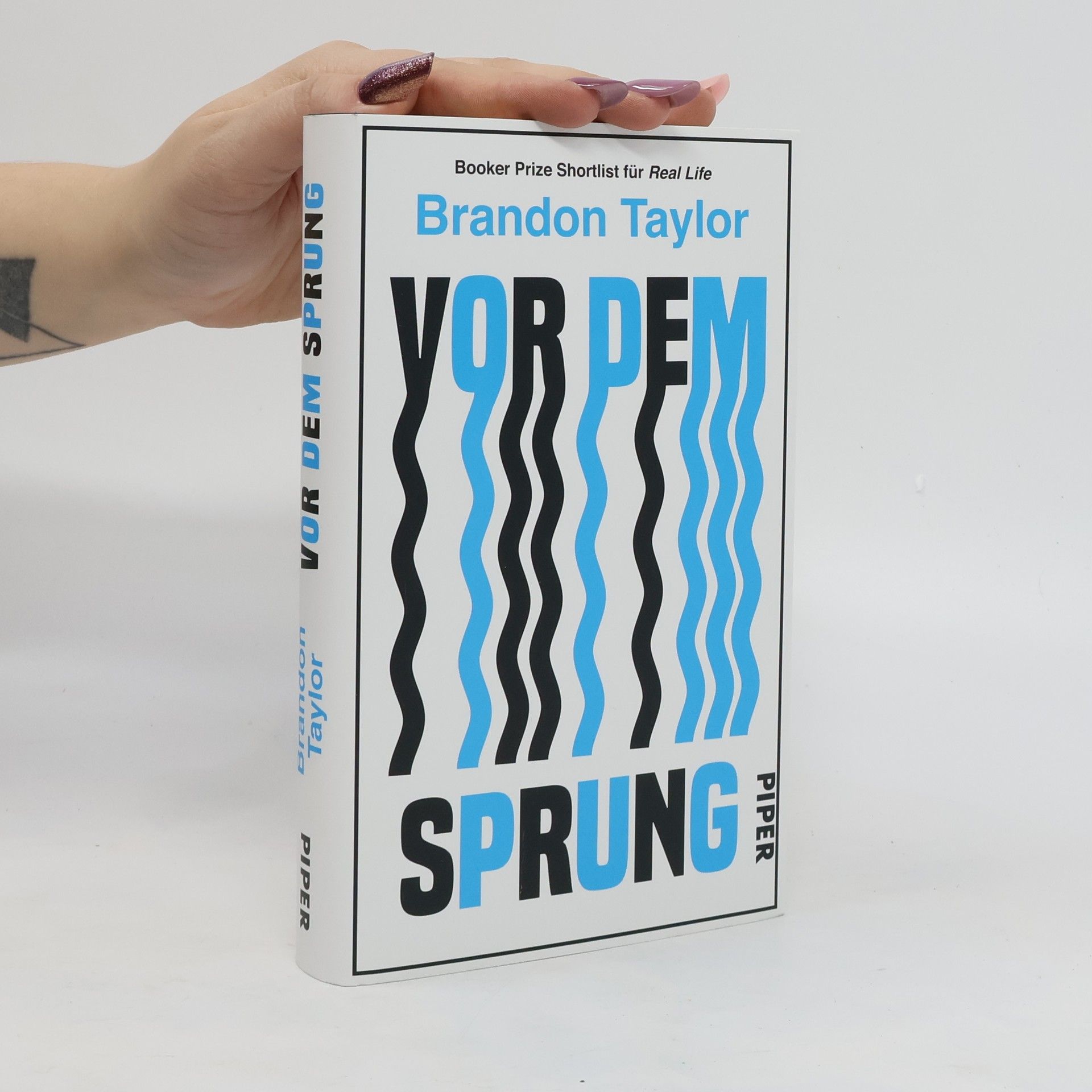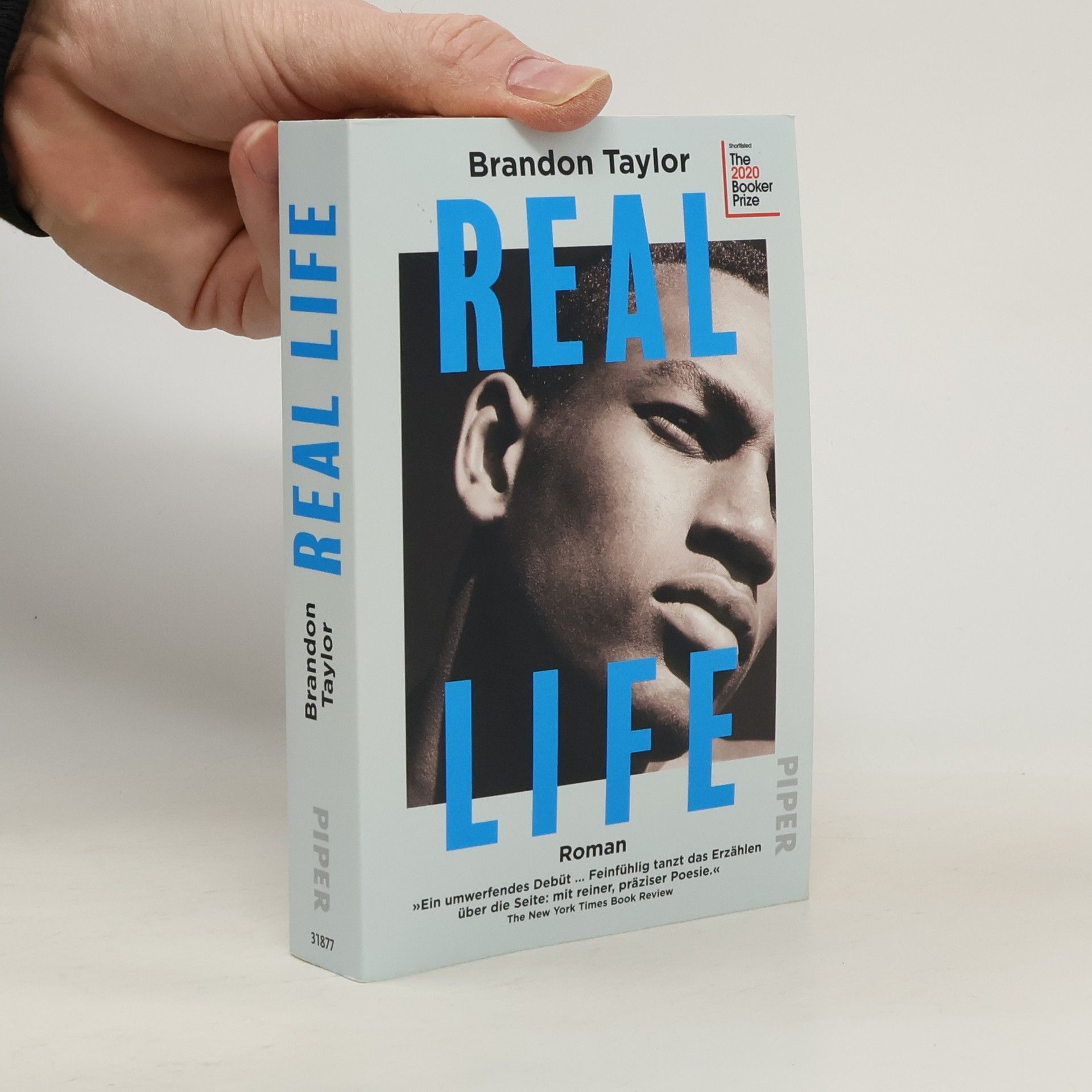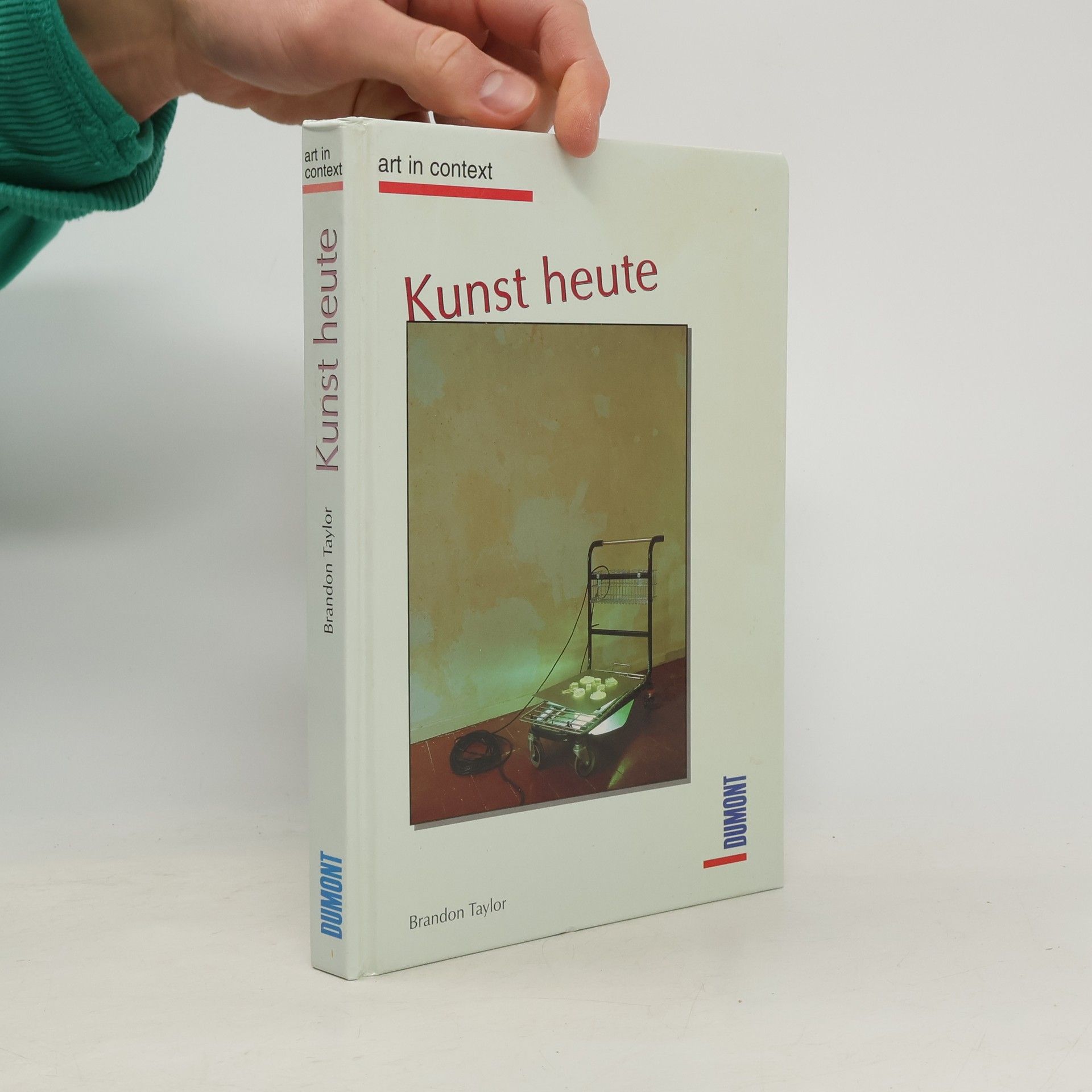Kunst heute
- 176 Seiten
- 7 Lesestunden
Brandon Taylors Schriften befassen sich mit tiefgründigen Charakterstudien und erforschen Themen wie Identität, Klasse und Sexualität mit einem scharfen Blick für psychologische Nuancen. Seine Prosa wird für ihre lyrische Qualität und präzise Sprache gefeiert, die den Leser eng in das Innenleben seiner Charaktere einbezieht. Taylors Werk seziert oft komplexe zwischenmenschliche Dynamiken und die subtilen Spannungen innerhalb gesellschaftlicher Strukturen. Er besitzt eine bemerkenswerte Fähigkeit, Verletzlichkeit und die inneren Landschaften von Individuen mit außergewöhnlicher Sensibilität darzustellen.






Roman | Shortlist des Booker Prize 2020
Storys | Ein filigranes Porträt queerer Liebe
Roman | »Einer der wichtigsten Autoren seiner Zeit.« The Guardian
Was kommt nach den Träumen? Es ist ein Jahr des Aufbruchs: Seamus, Fyodor, Iwan, Noah und Fatima bleibt nicht mehr viel Zeit, um über ihre Zukunft zu entscheiden. In ihrem letzten Jahr in Iowa City, einer verschlafenen Universitätsstadt im Mittleren Westen, fragen die Liebenden und Freunde sich: Worauf setzt man im Leben? Arbeit, Liebe, Geld, Tanz, Poesie? Und wie sieht wahre Verbundenheit in einer Zeit des Umbruchs und der Krisen aus? Feinfühlig und unerschrocken erzählt Brandon Taylor von Freundschaft und radikaler Selbstoffenbarung, Herkunft und Ambition – und erweist sich erneut als exzellenter Chronist unserer Gegenwart. »Brandon Taylor verfügt über ein Feingefühl, so unerschöpflich und elegant, wie wir es nur von Klassikern kennen, und schreibt zugleich geschliffen scharf über die Gegenwart.« Emma Cline »Scharfsinnig, intim, urkomisch, ergreifend ... Ein großartig geschriebener Roman über die Verheißung der Jugend, die Suche nach Seelenverwandten und der eigenen Berufung.« Oprah Daily »Taylor hat das Talent, unseren schnöde dahinsurrenden Alltag in Poesie zu verwandeln.« The New York Times Book Review »Taylors Romane sind so groß, dass sie die ganze Welt enthalten.« Esquire
One of the most energetic artistic debates of the 20th century took place in the Soviet Union in the years between 1917 and 1939, as different movements in the art world vied with each other in claiming to represent the true art of the people in the period of the dictatorship of the proletariat. The Party followed the debate closely, seeking to guide its progress and strengthen central control over the formulation of artistic policy, as advocates of social realism and symbolism took issue with exponents of modernism. Until now, Western interest in these debates has focused exclusively on the activities and theories of the modernists. Brandon Taylor aims to provide a full picture of Soviet culture in its early period - one that is fundamental to an understanding of the arts in the Soviet Union today.
What is form in modern art? How could a work of art achieve its organic life in a world increasingly dominated by mechanism, by new technology? In this new book, Brandon Taylor proposes that biology and the life sciences themselves supplied many of the analogies and metaphors by which modern artists were guided. For the creative giants of the period - Picasso, Miró, Kandinsky, Strzeminski, Dalí, Arp, Motherwell and Pollock, as well as less-known figures such as Taeuber, Erni and Kobro - questions of 'living' form loomed large in studio conversation, in the press, and in the writings of the artists themselves.In a book rich in new research and fresh thinking, a well-known art historian proposes six modalities of organic and vital life that pervade the radical experiments of modern the organic , the biomorphic , the ambiguous , the monstrous , the dialectical , and the liquid .
A fascinating journey through Western art from the 1910s to the 1960s, charting how artists wrestled with the headlong changes of a turbulent and conflict-ridden world
A comprehensive history of collage theory and practice describes Picasso's formation of the modern art form in 1908, its applications by progressive artists, its variations, and numerous significant pieces that marked the genre's evolution throughout the twentieth century.
A hotly charged new work of fiction from the Booker Prize shortlisted author of Real Life.
In a university town in the American Midwest a circle of lovers and friends navigate tangled webs of connection as they try to work out what they want, and who they areAs they test their own desires in a series of relationships they are confronted by volatile figures in town, from unruly, vulnerable young poets to a local landlord harbouring a lifetime of resentment.Seamus, Fyodor, Ivan, Noah and Fatima ask themselves and each other: what is the right thing to stake a life on? Work, love, money, dance, poetry? Is love possible without harm? And what does true connection look like in an age of precarity?